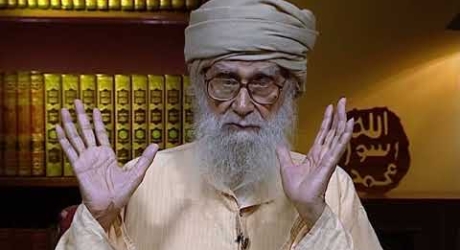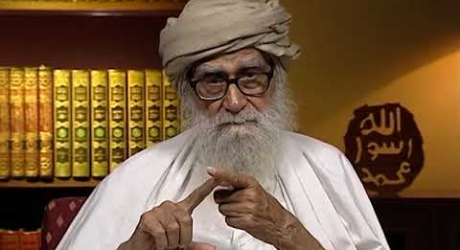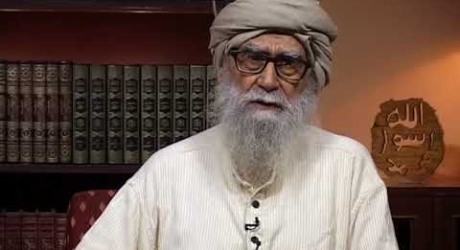The month of Ramadan is upon us. During the month of Ramadan, the ninth month of the Islamic calendar, fasting for the whole month has been made obligatory for all Muslims. By way of explanation, the Quran tells us: “Believers, fasting has been prescribed for you, just as it was prescribed for those before you, so that you may guard yourselves against evil” (The Quran, 2:183). At another place, the Quran has this to say: “He desires you to fast the whole month, so that you may glorify Him for His having guided you and so that you may be grateful to Him.” (The Quran, 2:185) The question is, just by abstaining from food and drink during the day, can the spirit of piety and thankfulness be inculcated? Fasting actually pertains to the spirit of the action and not to its form. Every such action has spirit and not just form. Similarly, all obligatory rites of worship have spirit as well form. For instance, the spirit of prayer is humility.
Introduction
The term ‘Roza’ is of Persian origin. In Arabic, it is known as ‘Soum’ meaning abstinence. Therefore, fasting is an exercise aimed at controlling our desires. In other words, it is the Art of Desire Management. Referring to fasting, the Quran cites:
The month of Ramadan is the month when the Quran was sent down as guidance for mankind with clear proofs of guidance and the criterion by which to distinguish right from wrong. Therefore, whoever of you is present in that month, let him fast (2:185)
The above verse indicates a strong correlation between the month of Ramzaan and the Quran. This relationship is on account of the month of Ramzaan being a preparatory course to understand the Quran. This is so because any result-oriented endeavour first demands a preparatory course. For example, man must attain marefat (God-realistion) before he attains a state of imaan (faith), Nafl prayers precede the main prayer and taleef-e-qalb (softening of the heart) comes before dawah work. The importance of the precursor is undeniable.
The month of Ramzaan similarly serves as a ‘preparatory course’ for embarking on the quest to understand the Quran. This becomes possible because in this month one reduces one’s needs to the bare minimum. By doing so, one is able to spare more time towards the study of the Quran.
Study of the Quran
The real aspect of the study the Quran is to contemplate on its verses. The Quran says in this regard
This is a blessed Book which We sent down to you, for people to ponder over its messages and for those with understanding to take heed. (38:29)
It is said, ‘Think, Think, Think. There must be a better way.’ This strongly applies in the context of the Quran because thinking alone can lead man closer to comprehending the true meaning of the Quran. For those who merely recite the verses, the following tradition of Hazrat Ayesha holds true
They read it but they did not read it (Musnad Ahmad)
Just like nature provides a non-verbal introduction of God, the Quran gives His verbal introduction to man. Pondering on the world around us - the blazing sun, the mighty winds, the life-giving trees and any other creation, visible or invisible provides a grand introduction of their Creator to those who reflect.
Here I am reminded of a couplet of a poet, Asghar who said
Asghar se mile lekin Asghar ko nahin dekha
Sunte hain ki shairon mein kuch kuch woh numaya hain
The fact is that nature is so compelling in itself that it leaves a thinking man baffled. Einstein said
The most incomprehensible fact about nature is that it is comprehensible
He said so because he wanted to explain the well-designed Universe without believing in God. He could not fathom why it was comprehensible and how the massive universe working for billions of years has been functioning in such a planned and well-designed manner. I would therefore say that in saying so Einstein could reach only half the truth as he failed to decipher that the universe is so meaningful because God created it such.
During Ramzaan
Ramzaan allows one to devote more time to study the Quran thus enabling him to fathom its deep meaning. For instance, a verse in the Quran reads
All praise is due to God (1:2)
As man thinks about why the Quran says so and observes the creations in this universe, he would become overwhelmed by the realization of the greatness of God, the Creator of the world. Discovering Him such, man would acknowledge that God alone deserves to be worshipped and His praises alone should be recited.
Another verse in the Quran reads
Is there any doubt about God, the Originator of the heavens and the Earth? (14:10)
Contemplating over this verse, leads man to the Big Bang theory. According to this Theory, billions of years ago, the universe was in the form of a highly compact, super atom. An explosion in this internally bound, compact atom led to the formation of galaxies, stars and planets. The occurrence of this explosion proves the existence of an external force that tore it apart. Realisation of this makes man fall down on his knees to acknowledge his Creator.
A Quranic verse states
It is He who released the two bodies of flowing water, one sweet and fresh and the other salty and bitter, and set up an insurmountable barrier between them. (25:53)
This phenomenon is observed at the point of confluence of the two rivers - Ganga and Yamuna at Allahabad. The two water bodies remain separate and do not mix with one another; a phenomenon explained through the concept of surface tension. Seeing this, you would undoubtedly cry out that this world has a Creator.
The Quran
The Quran is a book of references. For instance, giving the reference of the Pharaoh, the Quran states
We shall save your body this day, so that you may serve as a sign for those who come after you (10:92)
This revelation must have appeared extraordinary when it was revealed. At that time no one knew that the Pharaoh's body was really intact, and it was nearly 1400 hundred years before this fact came to light. It was a Professor Loret who, in 1898, was the first to find the mummified remains of the Pharaoh who lived in Moses' day. For 3000 years, the corpse had remained wrapped in a sheet in the Tomb of the Necropolis at Thebes where Loret had found it, until July 8, 1907, when Elliot Smith uncovered it and subjected it to proper scientific examination. In 1912 he published a book entitled The Royal Mummies. His research had proved that the mummy discovered by Loret was indeed that of the Pharaoh who 'knew Moses, resisted his pleas, pursued him as he took flight, and lost his life in the process.' His earthly remains were saved by the will of God from destruction to become a sign to man, as is written in the Qur'an.
Thinking about this historical reference, the heart of a believer would shudder and vouch for how a man in the seventh century came to know of this when no one else knew it. This would make one discover that the Quran is indeed the Book of God.
Few days back, I read an article about how railways were constructed in India. It is said that in 1853, an English Lieutenant visited the city of Kolkata in India. He had to visit Peshawar and it took him three months to reach there through various means of transport. As I read it, I realized how even when a high-ranking British official took three months to travel, how difficult must the journey be for a common man.
Mulling over how thinking leads man to fathom deeper secrets of life, my attention fell upon people whom I saw taking a brisk walk in a park near my house. I wondered how they were getting oxygen every moment. This was because God had made air available free of cost so that man receives oxygen everywhere and he does not have to carry its supply with him. Thinking thus floods the hearts of men with a sense of gratitude to God for His having made complete provision for their needs. That is when man praises God and offer up his thanks to Him. This feeling of dependence on God’s bounty also makes him adopt a properly cautious attitude to life.
God remained out of focus
God never became the focus of man’s life. That is, he never became emotionally attached to God in the full sense of the word. For example, the Muslims have Muhammad in their focus but not God. I remember a book which was published from Pakistan entitled, Shehaab Nama. Qudratullah Shehaab, Private Secretary of President Ayyub Khan has penned down the experiences of his life in this book. He wrote that when he was young and studied in school, he used to often cross a road by the side of which lived an old man. This old man often talked profanely about God. He and his friends used to laugh at him and pass by. However, he said that once this old man spoke ill of Muhammad. On this, he took a stone and hit him. He questions in the book that why is it that when he spoke ill of God we did not react, but did so when he spoke ill of Muhammad.
According to me, the answer to this is that Prophet Muhammad is a seen phenomenon who has historical credibility because his endevaours went down in the annals of history. God, in this sense is not a seen phenomenon and therefore the Muslims think of God only along ritualistic lines. Another example of this is the publishing of a book entitled, God is Dead. No Muslim reacted to it. On the contrary, the Muslims become severely antagonized and react if a book or cartoon is published about Prophet Muhammad. This is because they know Muhammad but not God.
Why Muslims are emotionally attached to Prophet Muhammad?
The Muslims are emotionally attached to the Prophet Muhammad because he was a seen phenomenon of Islamic history whereas God in that sense was an Unseen Phenomena. According to a Hadith
Worship God as if you are seeing Him (Al-Bukhari)
For worshipping God such, man will have to sincerely contemplate and think about the creations spread in the world around him. Using inferential argument, man can comprehend the existence of God just as he comprehends the existence of any other thing – animate or otherwise. Sir Arthur Eddignton explained this phenomenon in his book, Science and the Unseen World by taking the analogy of a table. A table, he says has two aspects to its existence – seen (made of wood) and unseen (comprising mad dance of electrons).
Here I recall an incident which took place in 1965, when I was living in Lucknow. I happened to meet a gentleman, who was a Doctor of Philosophy and a great admirer of Bertrand Russell. Of course, he was an atheist. During our conversation about God he asked: “What criterion do you have to prove the existence of God?” I replied: “The same criterion which you have for proving the existence of anything else.” The dialogue ended there. There was no question and no answer after this. Why did this learned man fall silent? The reason is very simple and well known. My answer was to him a kind of reminder. I reminded him of the fact that we are living in a world where inferential argument is as applicable to the concept of God as to any other concept.
When we reflect deeply about our world, we find that all over the universe there are clear signs of planning, design and intelligent control. These signs lead us to believe that there is a Creator of creatures, there is a Designer of designs, and there is a Mover of all movements. A verse in the Quran says
…so that you may be grateful to Him (2:185)
The nature of every human being constantly urges him or her to recognise the need for God. Without God, our lives cannot be complete. Discovery of God is the greatest discovery and can take place only with those who sincerely strive to achieve it.
Conclusion
The month of Ramzan is the month in which the Quran was revealed. This indicates that there is a close link between Ramadan and the Qur’an. Also this is a month during which the Qur’an should be read and understood. When the Qur’an is read during the month of its revelation, it reminds us of the time when the divine light from heaven fell upon the earth. In this way the Qur’an becomes a guiding force in man’s life.
Ramadan is a month of spiritual activism when devotees try to awaken their spirituality. It is a scheme to improve human beings. Roza is for personality and intellectual development. This is done by desire management, experiencing helplessness, and connecting to God with true prayers. Fasting produces an atmosphere of generosity, well wishing and compassion—an atmosphere in which people’s needs in society may be happily fulfilled. It is a means by which society may be turned into a truly human brotherhood. This eventually becomes the way of life for the whole year. The month of Ramadan thus becomes a preparatory course, which help save man from distraction. When man does so, he prepares himself to understand the message of the Quran. In other words, Ramzaan brings God into man’s focus.
One who fasts in all sincerity takes care to cast his entire life in the one consistent mould. Unfortunately, people know about Ramadan only in ritualistic sense. They over indulge themselves in eating and resting and seldom release the spiritual importance of this month. According to a Hadith
Many of those who fast do not get anything from their fast except hunger and thirst. (Mishkat)
Fasting is, therefore, a form of training to create the capacity in a man to become the most devoted worshipper makes him most grateful to God and creates a fear of Him, which makes him shiver. The very hardship of fasting carries a man from the material world to the plain of spirituality. Leading a life of restraint for a whole month produces a transformation in one’s thinking enabling one to offer a positive response even to another’s negative behaviour.












